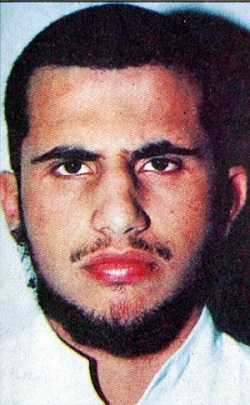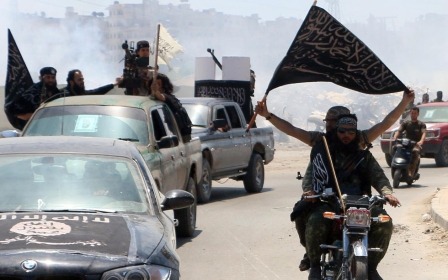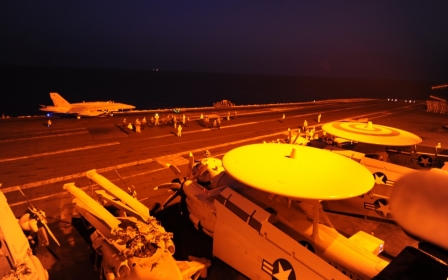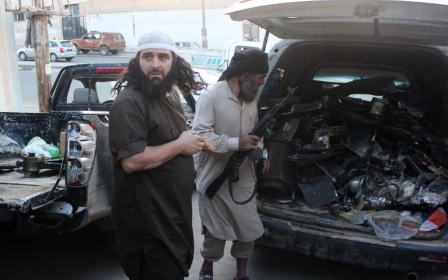Strike kills senior al-Qaeda leader in Syria: Pentagon
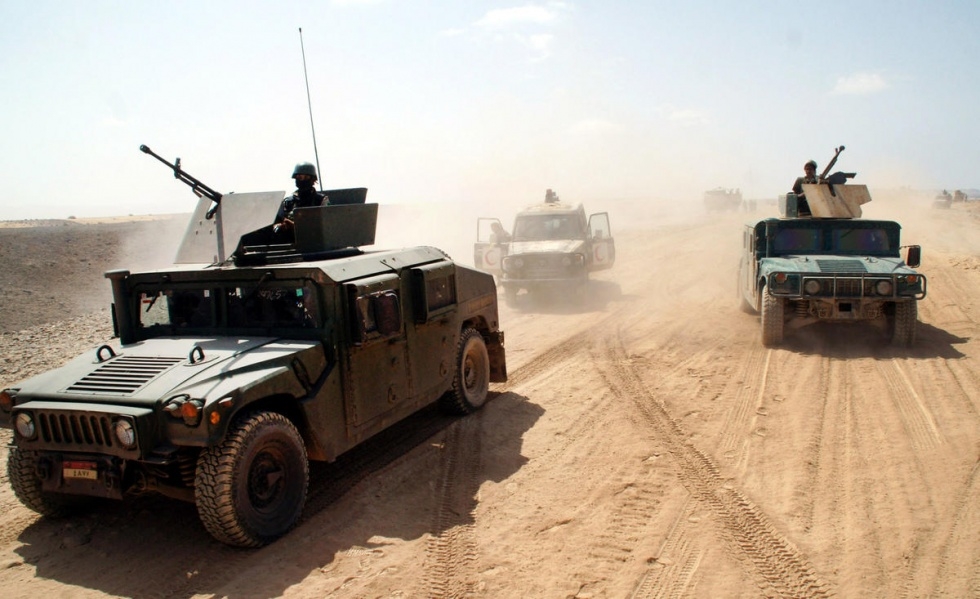
The alleged leader of al-Qaeda's Khorasan group was killed in an airstrike by the US-led coalition in northern Syria, the Pentagon said Tuesday.
The "kinetic strike" killed Muhsin al-Fadhli on 8 July while he was traveling in a vehicle near Sarmada, Syria, Pentagon spokesman Captain Jeff Davis said.
He did not confirm whether a drone or a manned aircraft had killed Fadhli.
Fadhli was allegedly the leader of the Khorasan Group, a group of senior al-Qaeda members who have travelled from Central Asia and elsewhere in the Middle East to Syria to plot attacks on the West. Khorasan is a term for the area in Afghanistan and Pakistan where al-Qaeda's main council is thought to be hiding.
Officials say Khorasan is part of al-Qaeda's Syrian branch, al-Nusra Front, though experts and activists cast doubt on the distinction between the two groups. In a May interview with Al Jazeera, the leader the al-Nusra Front, Abu Mohamed al-Jolani, denied the existence of the Khorasan group.
The US State Department had posted a $7mn reward for information leading to Fadhli's death or detention.
He was wanted by law enforcement authorities in Kuwait, Saudi Arabia and the United States.
The Huffington post reported that some US officials believed that Fadhli had already been killed in a previous attack. Fadhli was believed to have been killed on several occaisons in the past, but those reports turned out to be false.
Fadhli was very close to the late al-Qaeda leader Osama bin Laden, according to the New York Times.
He also "was a senior al-Qaeda facilitator and was among the few trusted al-Qaeda leaders who received advance notification of the September 11, 2001, terrorist attacks on the United States," said Captain Jeff Davis, a Defence Department spokesman.
"His death will degrade and disrupt ongoing external operations of al-Qaeda against the United States and its allies and partners."
Davis, who heads the Defence Department's press operations, said Fadhli was also involved in October 2002 attacks against US Marines on Kuwait's Faylaka Island and on the MV Limburg, a French oil tanker.
He was reported to have been previously targeted in a US airstrike in September, but his death was not confirmed by US officials at the time.
US intelligence says the Kuwaiti-born militant measured just five feet five inches (165 centimeters) and fought alongside the Taliban and al-Qaeda in Pakistan, according to the State Department.
He had become al-Qaeda's senior leader in Iran, the US National Counterterrorism Centre has said.
Fadhli was a major facilitator to the late Abu Musab al-Zarqawi, who once led al-Qaeda in Iraq, and other fighters against US and multinational forces.
He was designated by the US Treasury Department for providing financial and material support to Zarqawi's network and Al-Qaeda.
The UN Security Council's al-Qaeda Sanctions Committee cited him in 2005 for his role in planning, facilitating and financing al-Qaeda attacks, which triggered a freeze on his assets and a travel ban.
New MEE newsletter: Jerusalem Dispatch
Sign up to get the latest insights and analysis on Israel-Palestine, alongside Turkey Unpacked and other MEE newsletters
Middle East Eye delivers independent and unrivalled coverage and analysis of the Middle East, North Africa and beyond. To learn more about republishing this content and the associated fees, please fill out this form. More about MEE can be found here.


